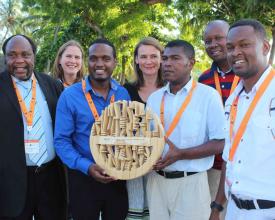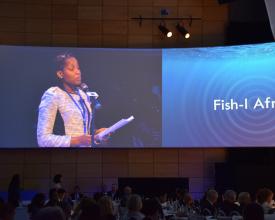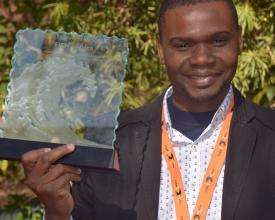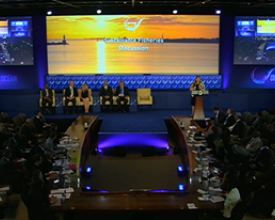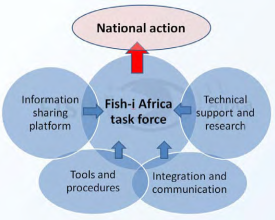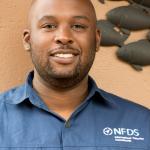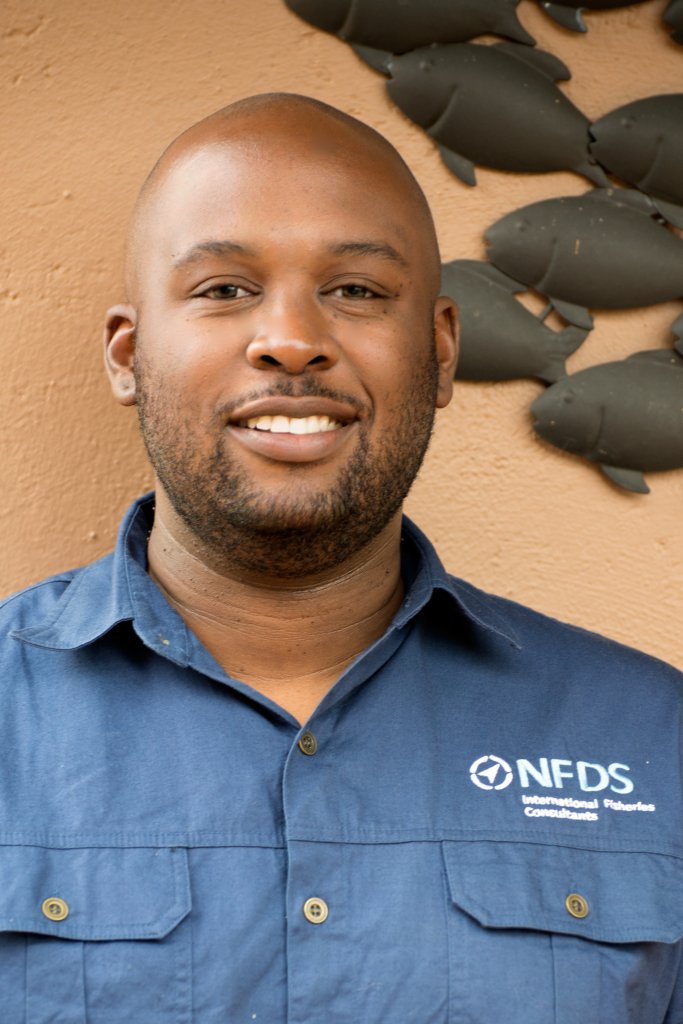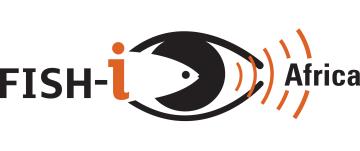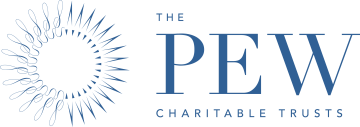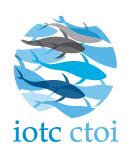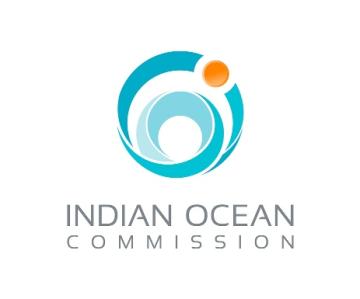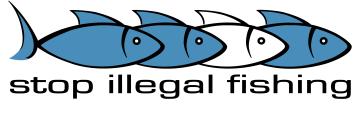
Le partenariat FISH-i Afrique
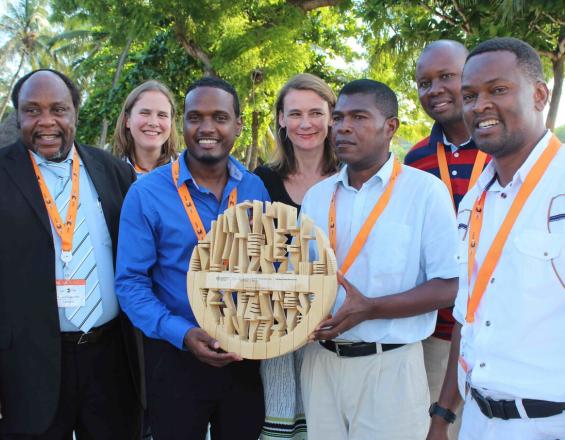
FISH-i Africa est un partenariat entre huit pays d'Afrique du Sud-Est, des organisations régionales et des experts internationaux qui recueillent, analysent, partagent et utilisent stratégiquement les informations pour prendre des mesures contre les opérateurs de pêche illégale. L'initiative a montré que l'application de la loi contre les opérateurs illégaux est possible, même si la capacité est faible et que les zones océaniques à surveiller sont vastes. Les facteurs clés ont été l'accès à des informations et à des renseignements pertinents et opportuns, le partage efficace des informations et une coopération régionale étroite.
Contexte
Défis à relever
Une vaste zone océanique de plus de 5 millions de km², des moyens et des capacités limités et un accès insuffisant à l'information. La collaboration de pays qui travaillent ensemble en partageant des informations et en prenant des mesures coercitives à l'encontre des opérateurs illégaux. Au-delà de la pêche illégale, d'autres délits liés à la pêche doivent être combattus, tels que la falsification de documents, l'utilisation abusive de l'identité des navires, le travail forcé, les délits liés à la pêche tels que la contrebande d'espèces sauvages, d'armes et de stupéfiants. Cette situation nuit à la gouvernance, à la légitimité et à la croissance économique potentielle du secteur, et la résolution de ces problèmes jouera un rôle dans l'avenir de FISH-i. Ces actes criminels constituent une menace pour la sécurité des personnes travaillant dans le secteur de la pêche. Il est urgent de veiller à ce que le secteur de la pêche de l'Océan Indien mène ses activités dans le respect de la loi.
Emplacement
Traiter
Résumé du processus
L'équipe spéciale FISH-i Africa, composée d'agents chargés de l'application de la législation sur la pêche dans les huit pays partenaires de FISH-i Africa, est soutenue par une équipe d'experts techniques internationaux et des partenaires régionaux dans leurs efforts pour prendre des mesures nationales contre les opérateurs de pêche illégale. Des informations pertinentes sur l'identité, l'historique, les opérateurs et la propriété des navires sont fournies et partagées sur une plateforme d'échange d'informations sécurisée basée sur le web (BB1). Des outils et des procédures sont élaborés dans le cadre du partenariat pour soutenir le partage d'informations et l'évaluation des risques en vue de l'identification et du suivi efficaces des navires de pêche illégale suspects et de la préparation des mesures d'exécution à l'encontre des opérateurs de pêche illégale (BB1, BB2). La recherche sur les acteurs et les schémas de la pêche INN dans l'Océan Indien, sur les outils, la technologie et les questions juridiques permet d'éclairer les stratégies futures contre les personnes impliquées dans la pêche illégale et la criminalité liée à la pêche (BB2). Enfin, l'intégration et la communication avec le monde extérieur sont essentielles : le partage des enseignements tirés, des informations sur les opérateurs et les stratégies des opérateurs de pêche illégale et la mise en avant de la question dans l'arène mondiale garantissent la confiance de l'équipe spéciale FISH-i Africa et soutiennent la lutte contre la pêche illégale à l'échelle mondiale (BB3).
Blocs de construction
Partage d'informations et coopération régionale
La task force FISH-i Africa a mis en place des mécanismes de routine pour partager des informations sur les navires de pêche battant leur pavillon et disposant d'une licence, ainsi que sur ceux qui sont actifs dans leurs zones de pêche et leurs ports. Ils coopèrent en vue d'atteindre des objectifs communs, qui consistent à prendre des mesures à l'encontre de ceux qui sont identifiés comme des opérateurs de pêche illégale. FISH-i Africa utilise une plateforme de communication interactive basée sur le web, facile à utiliser et sécurisée, grâce à laquelle des informations pertinentes peuvent être partagées en temps quasi réel. Ces informations comprennent des données de suivi par satellite, des informations sur l'identité, le pavillon et la propriété des navires, leurs activités de pêche, leurs réseaux et leurs itinéraires commerciaux, ainsi que des recherches systématiques sur les activités de pêche illégale. Les membres peuvent envoyer des demandes et discuter de questions opérationnelles, juridiques ou stratégiques. Des réunions en face à face au moins deux fois par an permettent d'approfondir les discussions, l'analyse, l'élaboration de stratégies et la planification, tout en renforçant les relations et la confiance. Au niveau national, le partage d'informations et la coopération doivent être renforcés afin de transformer les informations et les preuves en actions. FISH-i Africa soutient la coopération inter-agences entre les autorités de la pêche, des ports, des douanes, des transports, de la police, de la santé et d'autres autorités afin de prendre des mesures d'application efficaces.
Facteurs favorables
Le soutien politique des champions régionaux a permis de lancer l'initiative avec succès, en maintenant la dynamique et en démontrant une forte volonté de traduire les opérateurs illégaux en justice.
La coopération et la participation active de tous les pays membres, fondées sur la confiance développée au fil des ans au sein du groupe de travail "Halte à la pêche illégale". Une solution technique établie pour la plateforme/mécanisme de partage d'informations qui est régulièrement alimentée en informations.
Leçon apprise
La communication régulière via la plateforme de communication en ligne FISH-i Africa facilite le partage rapide d'informations et la transparence entre les membres de la Task Force et les partenaires régionaux. Elle encourage également les membres les plus réticents à "faire ce qu'il faut" ou à "répondre". Les caractéristiques les plus intéressantes de FISH-i Africa sont l'accès à des informations sur les navires de pêche et les licences d'autres pays FISH-i, la coopération régionale qui permet des communications opportunes, les conseils fournis pour soutenir la prise de décision en ce qui concerne les cas potentiels ou réalisés et la sensibilisation accrue à la pêche illégale.
Manque d'action au sein de la task force : les membres de la task force ont parfois été lents à s'engager ou à répondre aux questions des autres membres de la task force, en raison d'un manque de capacité ou de préoccupations nationales spécifiques, ce qui a parfois ralenti les progrès globaux sur les cas potentiels. Des conflits entre pays sont apparus lorsque des navires battant pavillon de pays membres de FISH-i Africa étaient impliqués.
Assistance technique et recherche
Facteurs favorables
Leçon apprise
Sensibilisation et promotion d'approches efficaces
La pêche illicite, non déclarée et non réglementée (INN) est de plus en plus discutée dans les forums internationaux et fait l'objet d'une attention croissante dans le contexte de la criminalité liée à la pêche et de la sécurité maritime. Toutefois, on sait peu de choses sur les cas réels de pêche illégale et sur la manière dont les pays pauvres en ressources peuvent prendre des mesures efficaces contre les opérateurs illégaux qui travaillent souvent dans des réseaux très flexibles et bien financés. FISH-i Africa propose des exemples de cas concrets de pêche INN, qui peuvent fournir des informations sur les tendances actuelles et éclairer les discussions souvent vagues sur la pêche illégale. FISH-i a également développé des champions politiques pour élever la question dans l'arène mondiale et pour faire pression en faveur de politiques et de réglementations qui répondent aux besoins de l'Afrique et du monde développé. En donnant aux membres de la task force la possibilité de s'exprimer en leur nom dans les réunions internationales, la task force a gagné la confiance de ses membres, qui sont désormais mieux à même de promouvoir des actions contre la pêche INN, tant au niveau national qu'international. Dans les processus de négociation, tels que le Comité des pêches de la FAO (COFI), le fait que les États membres de FISH-i se regroupent au sein d'un groupe africain permet d'exercer une plus grande influence sur les accords conclus et de les rendre plus pertinents pour les questions liées à la pêche INN sur le continent.
Facteurs favorables
Les champions régionaux sont importants pour rallier le soutien de la task force à la fois dans leur pays et à l'étranger et pour communiquer les expériences et les connaissances de la task force. Connaissance et accès aux forums politiques et aux événements internationaux. Du matériel de sensibilisation fondé sur des données probantes, élaboré à partir des expériences et des cas de la task force.
Leçon apprise
La communication et la sensibilisation aux cas de pêche illégale et aux mesures qui ont été prises sont importantes pour renforcer la confiance des agents chargés de l'application de la législation sur la pêche et pour décourager les opérateurs de pêche illégale. FISH-i Africa a fourni un forum qui permet également à ceux qui luttent activement contre la pêche illégale dans les pays en développement pauvres en ressources de faire part de leurs expériences et de leurs connaissances dans les processus internationaux et d'être entendus.
Le travail de communication et de politique absorbe une grande partie des ressources qui pourraient être consacrées au travail concret sur les cas de pêche illégale, à la recherche sur les modèles et les stratégies de pêche illégale et à l'élaboration de méthodes et d'outils. La consolidation de la voix de l'Afrique bénéficierait d'un dialogue régional plus fort (par exemple au sein des organismes régionaux de pêche ou des communautés économiques) qui s'inscrirait dans le processus continental. Les synergies entre les processus politiques régionaux et continentaux devraient être renforcées.
Impacts
Le partage d'informations et la coopération dans le cadre de FISH-i Africa ont permis de mener à bien des actions de contrôle. Chaque action a fait en sorte que la pêche illégale ne soit plus une activité à faible risque et à forte rentabilité, et a placé les opérateurs de pêche illégale sous les feux de la rampe, tout en donnant aux agents chargés de l'application de la loi la confiance nécessaire pour prendre d'autres mesures. Au total, plus de 3 millions d'USD d'amendes ont été payés, des navires ont été dépavillonnés et des navires opérant sous de fausses identités ou des identités multiples ont été identifiés. Des pêcheurs utilisant des licences falsifiées ont été identifiés et poursuivis. L'analyse de la pêche illégale, de l'illégalité, de la criminalité et de l'anarchie dans le secteur de la pêche dans l'Océan Indien montre que des méthodes et des techniques communes sont employées. Ces modus operandi permettent aux opérateurs illégaux d'entreprendre des activités illégales, souvent sans être détectés, et, lorsqu'ils font l'objet d'une enquête, de s'en tirer ou de minimiser les pénalités et les sanctions. Les caractéristiques de FISH-i Africa jugées les plus utiles par les utilisateurs sont l'accès aux informations sur les navires de pêche et les licences d'autres pays FISH-i, la coopération régionale permettant des communications opportunes, les conseils fournis pour soutenir la prise de décision en ce qui concerne les cas potentiels ou réalisés et les mesures d'exécution, et la sensibilisation accrue à la pêche illégale.
Bénéficiaires
Les peuples et les gouvernements de l'Océan Indien occidental, en particulier les pays de l'Afrique FISH-i.
Objectifs de développement durable
Histoire
L'océan Indien occidental abrite d'abondantes ressources halieutiques qui alimentent une industrie de la pêche florissante, laquelle soutient à son tour les économies locales et fournit de la nourriture et des emplois dans la région. Ces ressources alimentent également l'un des points chauds de la pêche illégale dans le monde, détruisant l'environnement marin, dépouillant les économies nationales, volant la nourriture et les moyens de subsistance des populations locales, et sapant l'industrie légitime. En réponse, sept pays - les Comores, le Kenya, Madagascar, Maurice, le Mozambique, les Seychelles et la Tanzanie - ont uni leurs forces en 2013 pour s'attaquer à ce problème par le biais d'une approche innovante, FISH-i Africa. Ces pays s'étaient déjà engagés à prendre des mesures contre la pêche illégale, mais en réalité, avec des eaux combinées de près de cinq millions de km² et des actifs et capacités limités, surmonter le réseau complexe de la pêche illégale à grande échelle était un défi. En décembre 2015, la Somalie a été acceptée comme huitième pays à rejoindre le partenariat FISH-i Africa. Les pays travaillent au sein de la task force Fish-i Africa par l'intermédiaire d'agents nationaux chargés de l'application de la législation sur la pêche qui recueillent et partagent des informations et prennent des mesures à l'encontre de ceux qui sont identifiés comme des opérateurs de pêche illégale. Il s'agit des responsables de l'application des lois sur la pêche des huit pays, sous l'égide de l'organisation à but non lucratif Stop Illegal Fishing et avec le soutien de Pew Charitable Trusts. FISH-i Africa a déjà travaillé sur plus de 30 cas concrets qui ont conduit à un certain nombre d'actions d'application et à une amélioration de la conformité (par exemple en ce qui concerne l'obtention de licences de pêche légales et la mise en œuvre des mesures de l'État du port). Grâce à sa structure flexible et dynamique, le partenariat FISH-i Africa a également fourni un mécanisme permettant au personnel opérationnel de haut niveau chargé du suivi, du contrôle et de la surveillance (MCS) de se rencontrer, de coopérer et de travailler sur des stratégies conjointes de lutte contre la pêche illégale. En 2015, le concept de FISH-i Africa a été adapté pour être reproduit dans un partenariat de pays d'Afrique de l'Ouest, financé par la Norvège. Six pays ont mis en place une task force ouest-africaine, en suivant le modèle établi en Afrique de l'Est, mais en le modifiant pour l'adapter à la situation spécifique de l'ouest du golfe de Guinée. La création d'une task force est également envisagée en Afrique centrale et le concept a suscité beaucoup d'intérêt en Asie du Sud-Est et en Amérique latine. Le modèle de FISH-i Africa et de son groupe de travail a été présenté dans divers forums, notamment à la FAO des Nations unies, à l'Union africaine et à la conférence "Our Ocean" qui s'est tenue récemment et au cours de laquelle FISH-i a présenté les prochaines étapes.

